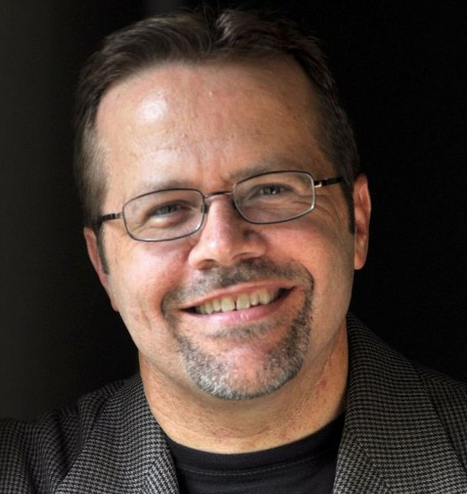 At first glance, some of you may look at the title of this post and wonder if I am about to sing the praises of one of the best point guards in the NBA, a Rookie of the Year, four-time All-Star, and Olympic gold medalist who just happens to play for the world champion Cleveland Cavaliers. But you would be wrong. That would be Kyrie Irving. (And yes, of course, I am pulling for Kyrie, LeBron and the rest of the Cavs to become just the twelfth team to repeat as NBA champions. But that story will have to wait a few weeks longer.)
At first glance, some of you may look at the title of this post and wonder if I am about to sing the praises of one of the best point guards in the NBA, a Rookie of the Year, four-time All-Star, and Olympic gold medalist who just happens to play for the world champion Cleveland Cavaliers. But you would be wrong. That would be Kyrie Irving. (And yes, of course, I am pulling for Kyrie, LeBron and the rest of the Cavs to become just the twelfth team to repeat as NBA champions. But that story will have to wait a few weeks longer.)
Kyrie eleison is not a person, but a prayer. The first time I remember hearing this mysterious yet strangely attractive phrase was back in the mid-1980’s when I was still in my early days as a youth pastor in northeast Ohio. “Kyrie” was the title of a hit song recorded by a band called Mr. Mister (I know, it sounds a bit redundant, doesn’t it?). If you want to experience a little blast from the past, you can still find the music video here. It’s actually a pretty cool song.
I’m not sure what inspired the recording of the popular song, but I can tell you about the origins of the ancient prayer itself. Kyrie eleison is a Greek phrase that means, “Lord, have mercy.” Its frequent use as a central prayer of the Christian church derives from several New Testament passages where some form of this phrase is invoked as a passionate plea from a genuinely broken and contrite heart. A Canaanite women, for example, cries out to Jesus, “Have mercy on me, O Lord” (Mt 15:22). Two blind men call out, “Lord, have mercy on us” (Mt 20:30). Bartimaeus implores Jesus, “Have mercy on me” (Mk 10:46). But the kyrie eleison is perhaps most powerfully illustrated in the Parable of the Pharisee and the Tax Collector (Lk 18:9-14):
“Two men went up to the temple to pray, one a Pharisee and the other a tax collector. The Pharisee stood by himself and prayed: ‘God, I thank you that I am not like other people—robbers, evildoers, adulterers—or even like this tax collector. I fast twice a week and give a tenth of all I get.’
“But the tax collector stood at a distance. He would not even look up to heaven, but beat his breast and said, ‘God, have mercy on me, a sinner.’
“I tell you that this man, rather than the other, went home justified before God. For all those who exalt themselves will be humbled, and those who humble themselves will be exalted.”
Over the centuries, the phrase kyrie eleison (“Lord, have mercy”) has become one of the most beloved and frequently repeated prayers in the entire church, especially among our Eastern Orthodox brothers and sisters. This is also the same phrase that inspired what is commonly called the Jesus Prayer (“Lord Jesus Christ, Son of the living God, have mercy on me, a sinner”), a humble petition that has become increasingly popular among Western Christians as well.
So why am I spending so much time describing, affirming and commending to modern day Friends the value of an ancient prayer that has its roots in Eastern Orthodoxy?
I have been following Jesus for nearly 40 years now, and I have always found prayer to be the most essential and most challenging of all the spiritual disciplines. But what has helped me most in recent years is the discovery that prayer is not limited to a few, specific methods or models that are unique to any one denomination or tradition. As my good friend, Fil Anderson likes to say, “There are as many ways to pray as there are moments in the day.”
I have found that the more that my prayer portfolio has expanded, the more freedom, depth and joy I have experienced in my walk with Christ. This has also helped me to more readily embrace the biblical admonitions to “pray without ceasing” (1 Th 5:17) and to “pray always” (Lk 18:1). I have found it much more do-able to pray always when I am better equipped to pray all ways.

If you are interested in expanding your prayer portfolio, I would encourage you to explore the kyrie eleison or Jesus Prayer, especially during this season of Lent. Try them on for size and see how they fit. To borrow from William Penn, you might think of it as a “holy experiment.” At the end of the day, I pray that you will be encouraged and empowered to pray as you can, not as you can’t.
Oh, and one more thing. It is critical to remember that we are never alone when it comes to this life of prayer. Our good and beautiful, triune God is always praying with us. As the Scriptures reminds us, God the Father “knows what you need before you ask him” (Mt 6:8), God the Son “always lives to intercede” for us (Heb 7:25), and God the Spirit “intercedes for us with groans that words cannot express” (Rm 8:26). As we learn to pray with God, not just to God, we grow to understand that prayer is simply a matter of staying in the conversation, i.e., continually and intentionally resting in the gracious embrace of our Creator, Redeemer and Sustainer, the Lover of our souls, the One who longs to communicate with us “face to face, as a man speaks with his friend” (Ex 33:11). And somehow, in the midst of this unfolding friendship with God, we are mysteriously and progressively transformed in such a way that others can actually see in us an imperfect yet increasingly authentic reflection of the very face of God (cf. 2 Co 3:18). As C.S. Lewis has testified, “prayer doesn’t change God; it changes me.”
Lord, have mercy.
– David O. Williams, General Superintendent
Follow Us!